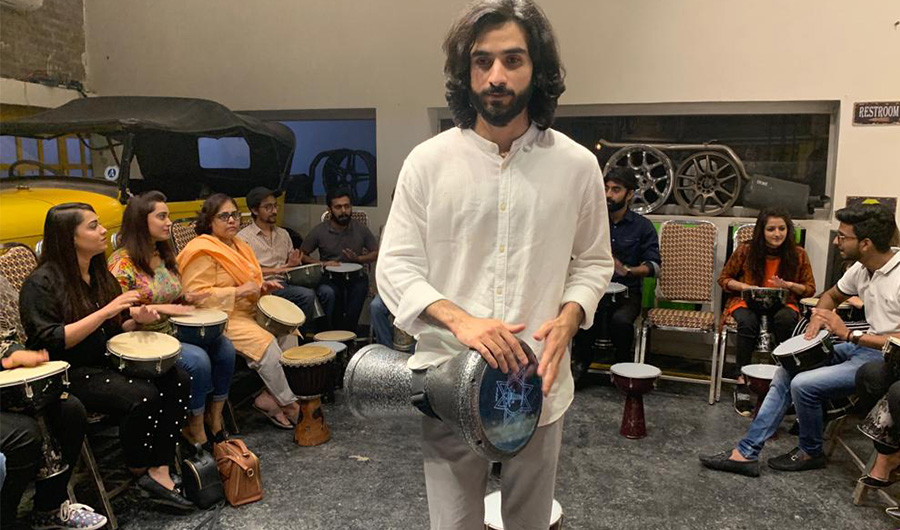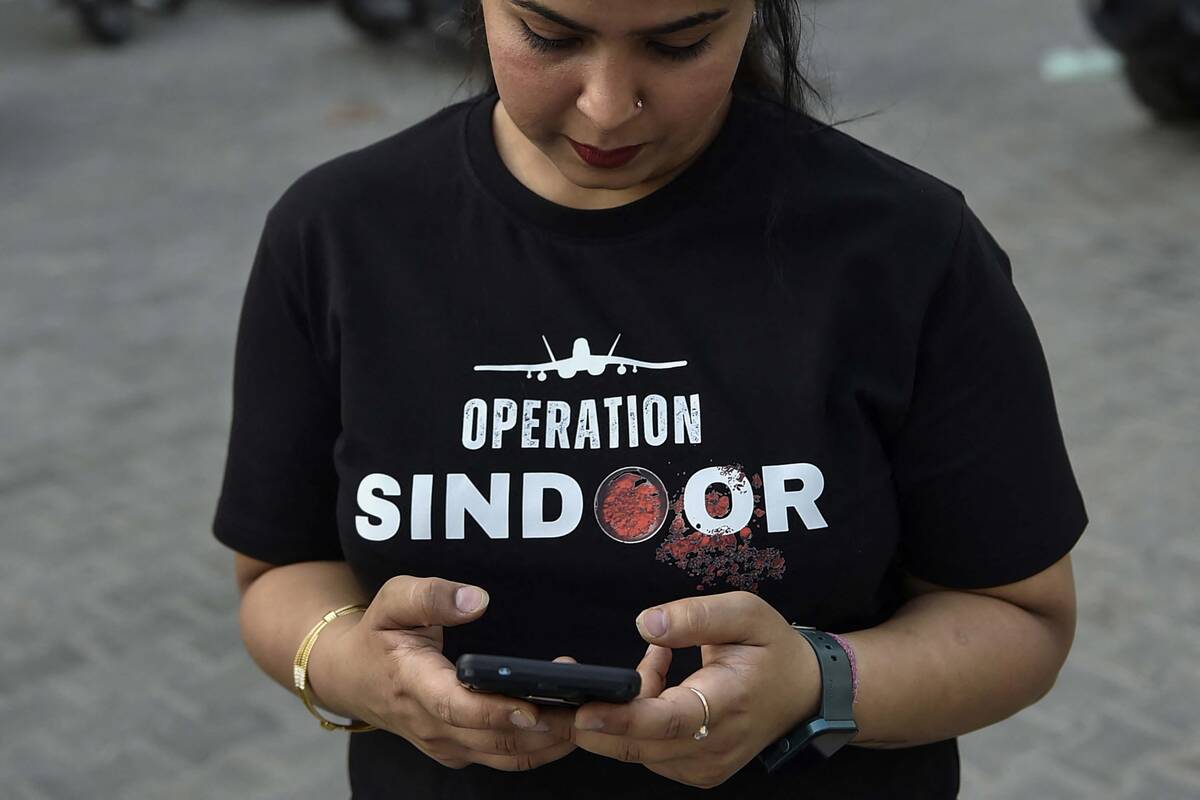ISLAMABAD: A rhythmic thump and thrum reverberated out into the streets surrounding the Cafe Garage in the Pakistani capital of Islamabad.
It is a familiar sound every Wednesday as the Drum Circle Islamabad — an informal group of people who play percussion instruments together — meets at a new venue to partake in community drumming.

Natiq Ali, one of the co-founders of Drum Circle Islamabad, plays the drums at a gathering of the group on June 12, 2019 (AN Photo)
The aim: to empower participants in the act of celebrating community and life through rhythm and music.
This Wednesday, too, at least 80 people gathered on the ground floor of the Cafe Garage for the drum circle, led by Usman Shakeel, 30, and Natiq Ali, 27, who founded the group in 2017. Since then, the original squad of six has expanded to crowds as large as 500 people playing together in parks, on street corners and at restaurants.

Co-founder of Drum Circle Islamabad, Usman Shakeel, leads the group into a call and response drumming pattern encouraging participants to synchronise their hits with the group on June 12, 2019 (AN Photo)
“Drums have been around since 6000 BC,” Ali told Arab News at this week’s gathering. “It’s communal, it’s communication, it’s therapy and it brings a lot of people together. It’s about being a part of something bigger than yourself.”
At Wednesday’s session, men and women of all ages, teenagers and even toddlers, poured into the cafe and settled into chairs arranged in a wide circle; many sat on the floor. No introductions were made; only the beats were counted and then everyone began to play, smiling and laughing at each other and performing in harmony as the sun went down in the city outside.

Mohammed Usman, the son of Usman Shakeel who co-founded Drum Circle Islamabad, joins the drummers on June 12, 2019 (AN photo)
“The vision was to facilitate people with an activity which creates a positive impact for society,” said Shakeel, a teacher and lead singer of the Sufi rock band Saakin. “We were playing drums together in parks, in streets and on roads. Wherever we played people would gather around and respond to what we were doing.”
“It allows us to channel our energies into something productive; the people of our country do not have outlets where they can express themselves, this is the community for that,” said Sheikh Mohammad Ahmed, one of the original members of the drum circle. “Here you are so many people with different rhythms in your mind but playing just one together — it’s very therapeutic.”
“I’ve come here more than ten times,” said Sara Abid, a young bespectacled project manager. “I come here every Wednesday. It’s not something I think about it, I just have to come.”



















